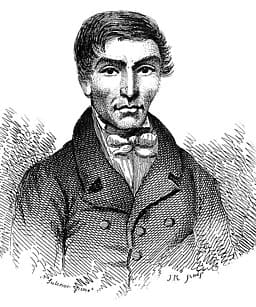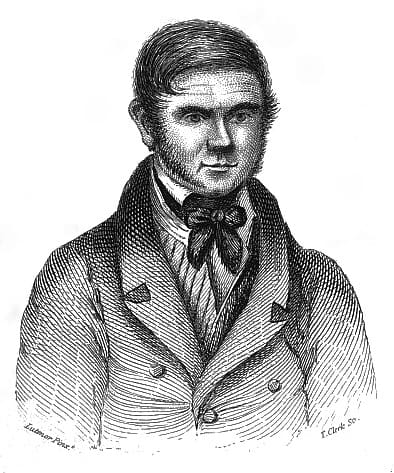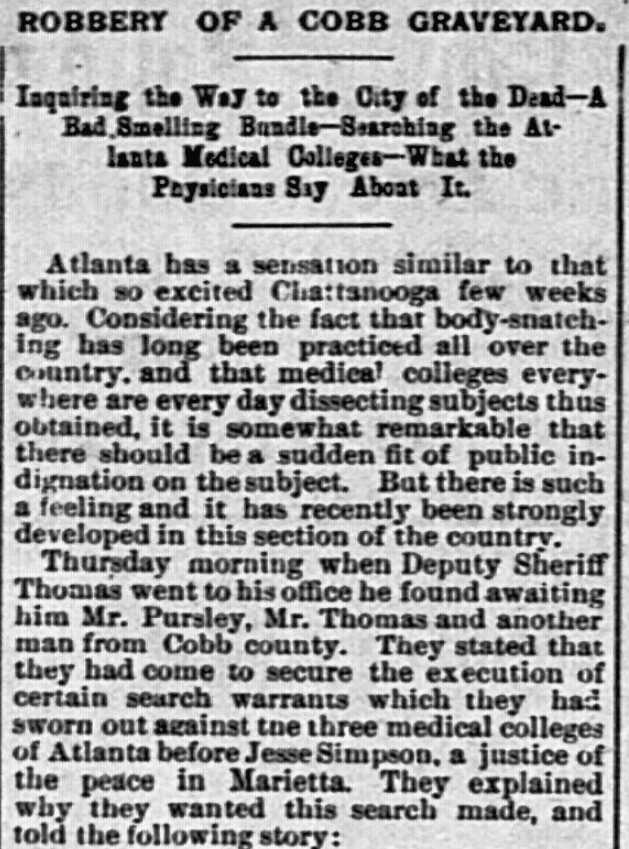[We occasionally update and republish our evergreen history articles. This article first appeared in the Courier in November 23, 2023
In the original version of the article we stated we had not found the outcome of the case. Since then we discovered a followup article published in the December 25, 1879 issue of the Columbus Daily Times. We’ve reprinted the text of that article in the last section below. If we find further information, we’ll continue to expand this article]
Throughout the early years of medical education, schools in need of cadavers would often resort to the illegal service of grave robbers, also called “body snatchers.”
The most well-known case internationally was that of Edinburgh, Scotland, grave robbers William Burke and William Hare, who began supplementing their grave robbery by murdering people to increase the number of cadavers they could sell. The Burke and Hare case became so notorious that it has been the subject of multiple movies over the decades, including a 2010 dark comedy with Simon Pegg and Andy Serkis.


Images of William Hare and William Burke above are in the public domain, retrieved from Wikimedia Commons https://commons.wikimedia.org/wiki/File:William_Hare.jpg and https://commons.wikimedia.org/wiki/File:William_Burke.jpg. From courtroom drawings created during their trials.
However, grave robbery was not limited to Victorian England.
On December 23, 1879, the Atlanta Weekly Constitution (one of the papers that form part of the Atlanta Journal Constitution’s early history) reported on a case in Cobb County that raised a public furor. (You can read a PDF image or OCR text version of the original article by following this link to the Georgia Historic Newspaper site).

The paper ran the story with a macabre headline: A “Stiff” Subject: the Robbery of a Cobb Graveyard.
After the reporter mused over why there was such concern “considering the fact that body-snatching has long been practiced all over the country,” the narrative began:
Thursday morning when Deputy Sheriff Thomas went to his office, he found awaiting him Mr. Parsley, Mr. Thomas, and another man from Cobb county.
They stated that they had come to secure the execution of certain search warrants, which they had sworn out against the three medical colleges in Atlanta before Jesse Simpson, a justice of the peace in Marietta.
They explained why they wanted this search made, and told the following story: Last week, Mr. William Johnson, an old and highly respected citizen of Cobb county, died after a short illness.
His remains were buried last Thursday afternoon near a Baptist church eight miles from Marietta, on the Roswell road.
On the following Saturday morning, some of the friends of the deceased passed by the graveyard and noticed that the mound over the grave of Mr. Johnson appeared rough and irregular. Later in the day, they became so suspicious that they resolved to disinter the remains.
They found pieces of clothing in the loose dirt in the grave. The coffin was reached, opened and found empty! The corpse had been snatched, stripped, and carried off.
The family of the deceased man were infuriated, and decided to pursue the case.
They found that a ferry operator had carried two men and a “light wagon” across the river near the cemetery. The men asked the ferryman for directions to the cemetery.
The men evidently returned on a ferry further up the river, and a witness reported they “had something in the wagon that smelled badly.”
After securing the warrants, Deputy Sheriff Thomas and a patrolman visited the three medical colleges in Atlanta: Eclectic Medical College, Southern Medical College, and Atlanta Medical College.
Eclectic Medical College had no dissection room, so it was eliminated. Southern Medical College was searched but no remains were found. When Atlanta Medical College was visited, there was a man on site, a Black janitor named George Vaughn, who resembled descriptions of one of the men on the ferry.
Twenty students testified that Vaughn had been with them, helping in the dissecting room when the grave robbery reportedly took place.
Still, the article reports that he was held for transport to Cobb County. Friends of Vaughn stated they would raise funds for his defense, and both the students and the faculty “regret the arrest of the janitor very much.”
“His friends say they will, if necessary, spend $1,000 to secure his acquittal of this charge” (about $32,000 in today’s dollars).
The original version of this article stated that we’d found no followup article on the disposition of the case, but we’ve since found one, reprinted at the end of this section.
The rest of the article was a general discussion of grave robbery around Atlanta.
The reporter talked to college officials, who stated that cadavers were necessary for medical training, that a good cadaver could bring $100 (over $3,000 in today’s dollars), and that since security had increased around city cemeteries, more grave robbers where traveling to rural locations to rob graves.
Here is a followup article on the case, from the December 25, 1879 issue of the Columbus Daily Times.
Convicted: George Vaughn Declared Guilty of Body-Snatching
The trial of George Vaughn, the colored janitor of the Atlanta Medical College, on the charge of stealing the body of the late William Johnston of Cobb County, concluded yesterday in Marietta. The Cobb Superior Court reconvened at 8:30 o’clock, with Judge Lester presiding. Judge Hopkins continued the defense’s argument in a very able speech, thoroughly considering the evidence and the law relevant to the case. Solicitor-General Greer concluded for the prosecution with a vigorous speech, full of excellent points.
The jury deliberated for only a few minutes before returning a guilty verdict around noon. A large crowd was present, and the verdict did not seem to surprise many, as the prosecution had made a strong case. Despite this, George Vaughn’s supporters have been vigorous in their efforts to defend him, firmly believing in his innocence.
Vaughn has not yet been sentenced, and there are rumors of an appeal. The offense for which George Vaughn has been declared guilty is classified as a misdemeanor under state law. The punishment may include a fine not exceeding $1,000, six months on the chain gang, or twelve months in jail, or any combination of these punishments at the discretion of the presiding judge.
About Georgia Historic Newspapers
Georgia Historic Newspapers is part of the GALILEO project and is housed at the University of Georgia. It’s an amazing resource for anyone interested in the history of Georgia and its regions.
According to the “About” page on its website:
The Georgia Historic Newspapers Archive is a project of the Digital Library of Georgia (DLG), a part of Georgia’s Virtual Library GALILEO and is based at the University of Georgia Libraries. Since 2007, the DLG has partnered with universities, archives, public libraries, historical societies, museums, and other cultural heritage institutions to digitize historical newspapers from around the state. The archive is free and open for public use and includes over two million Georgia newspaper pages between 1763 and 2021.
Newspaper titles are regularly digitized and added to the archive. If you are interested in including a particular title, you can visit our participation page. A majority of the newspapers on this site were digitized from the microfilm produced by the Georgia Newspaper Project (GNP). For more information about the microfilm available through the GNP, please visit their website.
